Zhixuan Liao
Centerness-based Instance-aware Knowledge Distillation with Task-wise Mutual Lifting for Object Detection on Drone Imagery
Nov 05, 2024
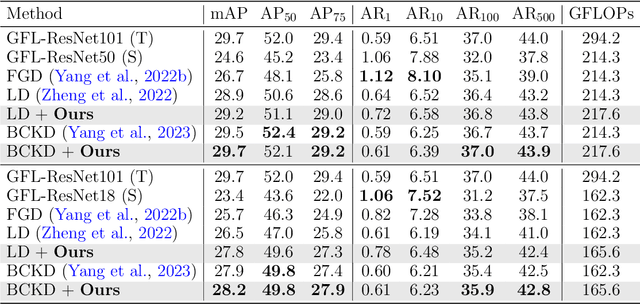
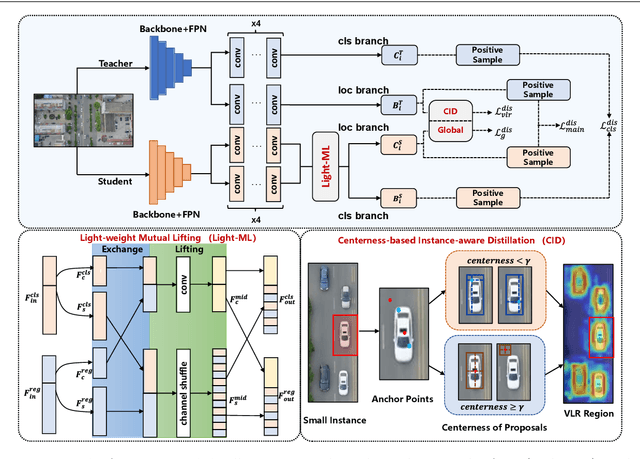
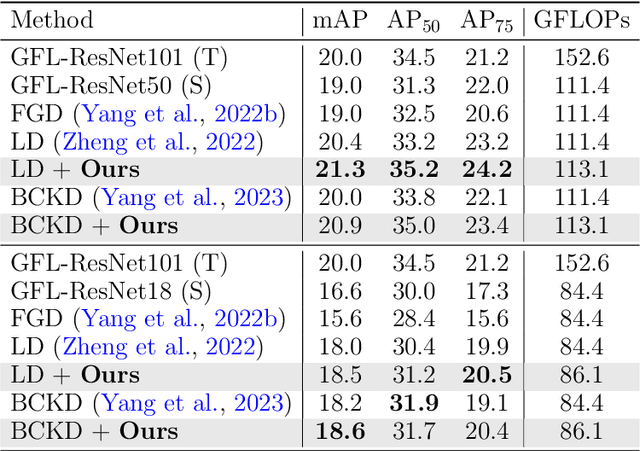
Abstract:Developing accurate and efficient detectors for drone imagery is challenging due to the inherent complexity of aerial scenes. While some existing methods aim to achieve high accuracy by utilizing larger models, their computational cost is prohibitive for drones. Recently, Knowledge Distillation (KD) has shown promising potential for maintaining satisfactory accuracy while significantly compressing models in general object detection. Considering the advantages of KD, this paper presents the first attempt to adapt it to object detection on drone imagery and addresses two intrinsic issues: (1) low foreground-background ratio and (2) small instances and complex backgrounds, which lead to inadequate training, resulting insufficient distillation. Therefore, we propose a task-wise Lightweight Mutual Lifting (Light-ML) module with a Centerness-based Instance-aware Distillation (CID) strategy. The Light-ML module mutually harmonizes the classification and localization branches by channel shuffling and convolution, integrating teacher supervision across different tasks during back-propagation, thus facilitating training the student model. The CID strategy extracts valuable regions surrounding instances through the centerness of proposals, enhancing distillation efficacy. Experiments on the VisDrone, UAVDT, and COCO benchmarks demonstrate that the proposed approach promotes the accuracies of existing state-of-the-art KD methods with comparable computational requirements. Codes will be available upon acceptance.
Who is Undercover? Guiding LLMs to Explore Multi-Perspective Team Tactic in the Game
Oct 20, 2024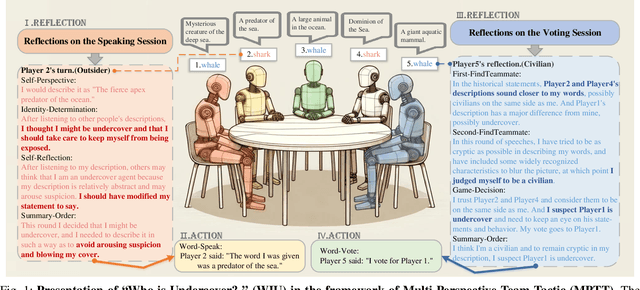
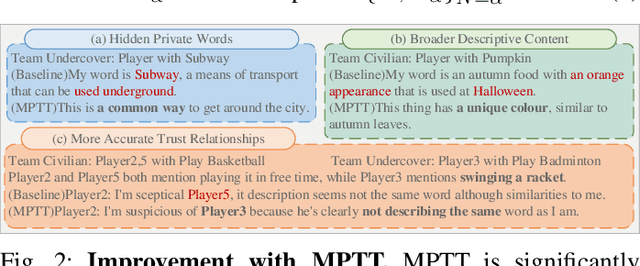

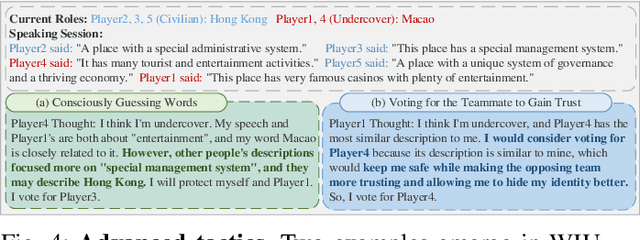
Abstract:Large Language Models (LLMs) are pivotal AI agents in complex tasks but still face challenges in open decision-making problems within complex scenarios. To address this, we use the language logic game ``Who is Undercover?'' (WIU) as an experimental platform to propose the Multi-Perspective Team Tactic (MPTT) framework. MPTT aims to cultivate LLMs' human-like language expression logic, multi-dimensional thinking, and self-perception in complex scenarios. By alternating speaking and voting sessions, integrating techniques like self-perspective, identity-determination, self-reflection, self-summary and multi-round find-teammates, LLM agents make rational decisions through strategic concealment and communication, fostering human-like trust. Preliminary results show that MPTT, combined with WIU, leverages LLMs' cognitive capabilities to create a decision-making framework that can simulate real society. This framework aids minority groups in communication and expression, promoting fairness and diversity in decision-making. Additionally, our Human-in-the-loop experiments demonstrate that LLMs can learn and align with human behaviors through interactive, indicating their potential for active participation in societal decision-making.
 Add to Chrome
Add to Chrome Add to Firefox
Add to Firefox Add to Edge
Add to Edge